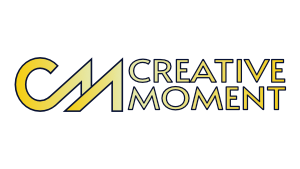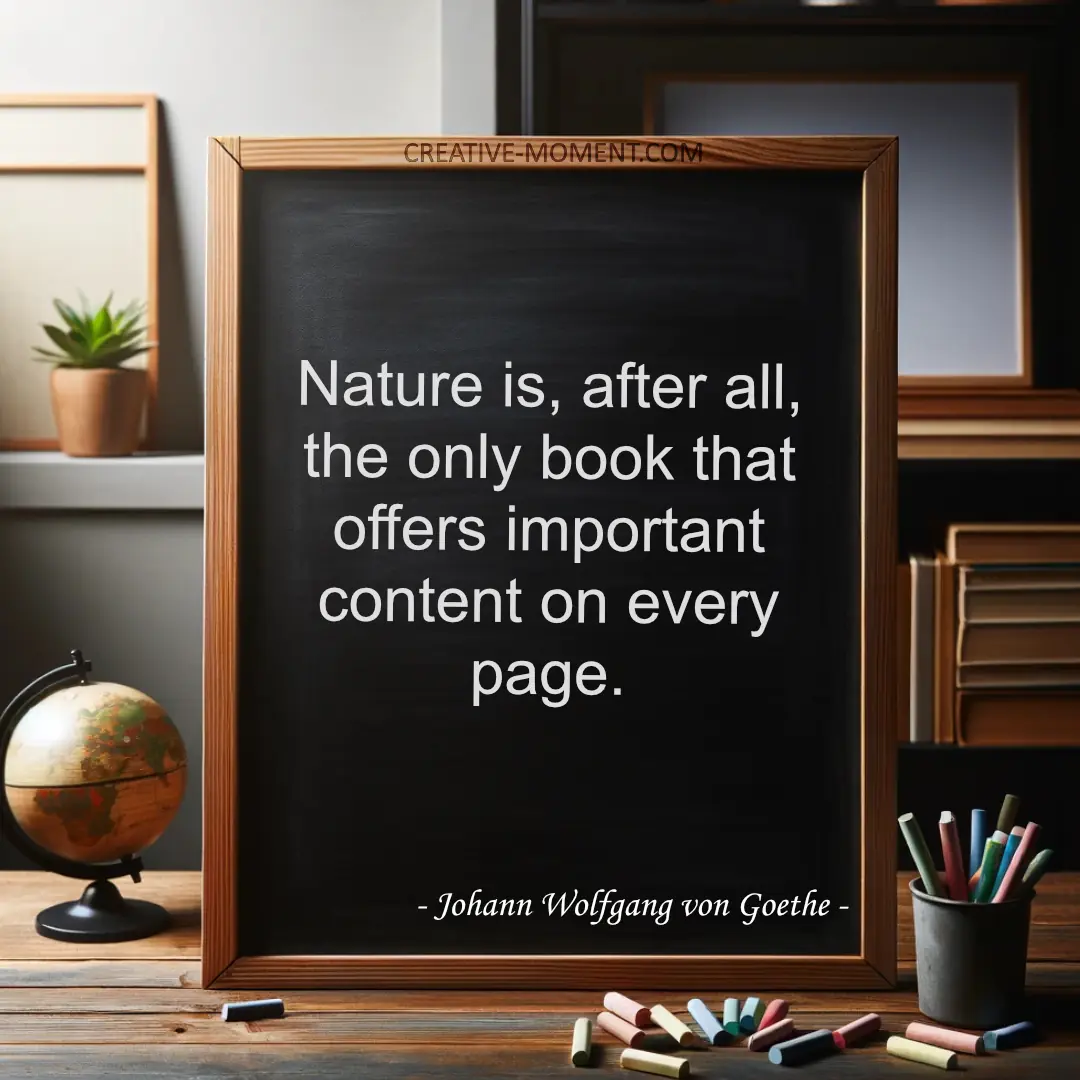Saying: Nature is, after all, the only book that offers important content on every page
Info
- Title: Nature is, after all, the only book that offers important content on every page
- Type: Sayings
- Category: Nature and Environment
- Print: Download as PDF for printing
The quote “Nature is, after all, the only book that offers important content on every page.” comes from Johann Wolfgang von Goethe and expresses his view of nature as a space of continuous meaning. The image of a book illustrates the richness and depth of the natural world—every page of nature contains something that can be understood.
Origin and Usage of the Saying
The quote “Nature is, after all, the only book that offers important content on every page.” is attributed to Johann Wolfgang von Goethe. It appears in various collections of his scientific and literary writings. Goethe viewed nature as an organic system that could not only be observed but also “read”—like a text with inner structure and meaning. The phrase is often cited in discussions of his natural philosophy and appears in many literary and philosophical contexts.
Meaning and Interpretation of the Saying
Goethe presents nature as a book full of insights. Every part of nature—whether a leaf, an animal, or a phenomenon—holds meaning. This view emphasizes that nature is not random but structured and significant. It invites careful observation and learning from what is perceived.
The comparison with a book highlights that nature is not only beautiful but also educational and profound. Goethe saw in each detail of nature a message to be deciphered—like a text that must be interpreted. Nature becomes a constant source of self-education.
The motif of “pages” is also double-edged. On the one hand, it refers to pages in a book; on the other, to botanical leaves. This imagery emphasizes the connection between language, knowledge, and nature, which was central to Goethe’s thought. He always perceived the natural as something also spiritual.
The quote calls for mindful observation of the world. Those who see nature as a book approach it with respect, curiosity, and intellectual interest. This attitude contrasts with a merely functional view of nature as a resource.
To this day, the quote is frequently cited when discussing holistic thinking and nature-based learning. In education, environmental ethics, and literature, it remains a staple of reflective discourse on the relationship between humans and nature.
Similar images
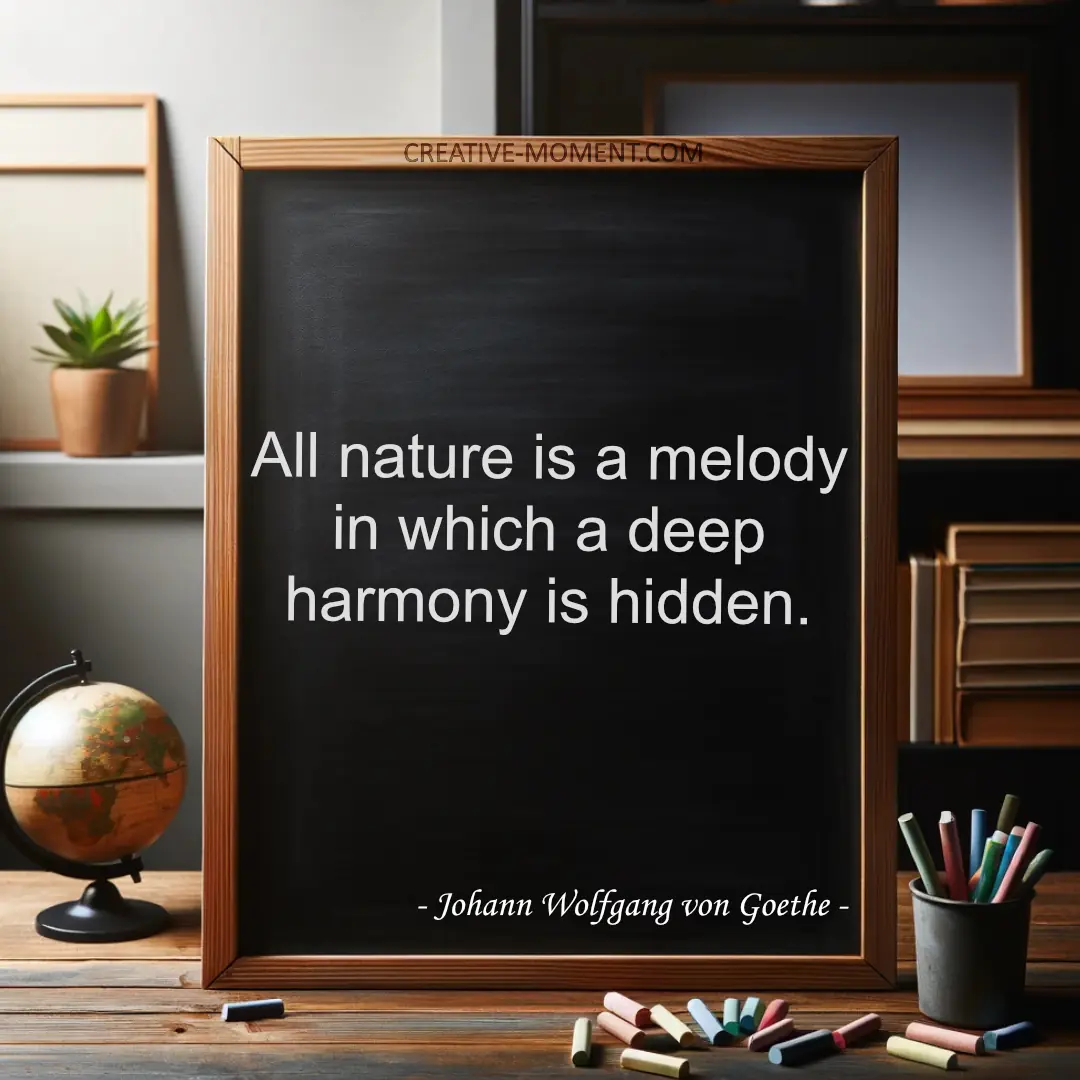
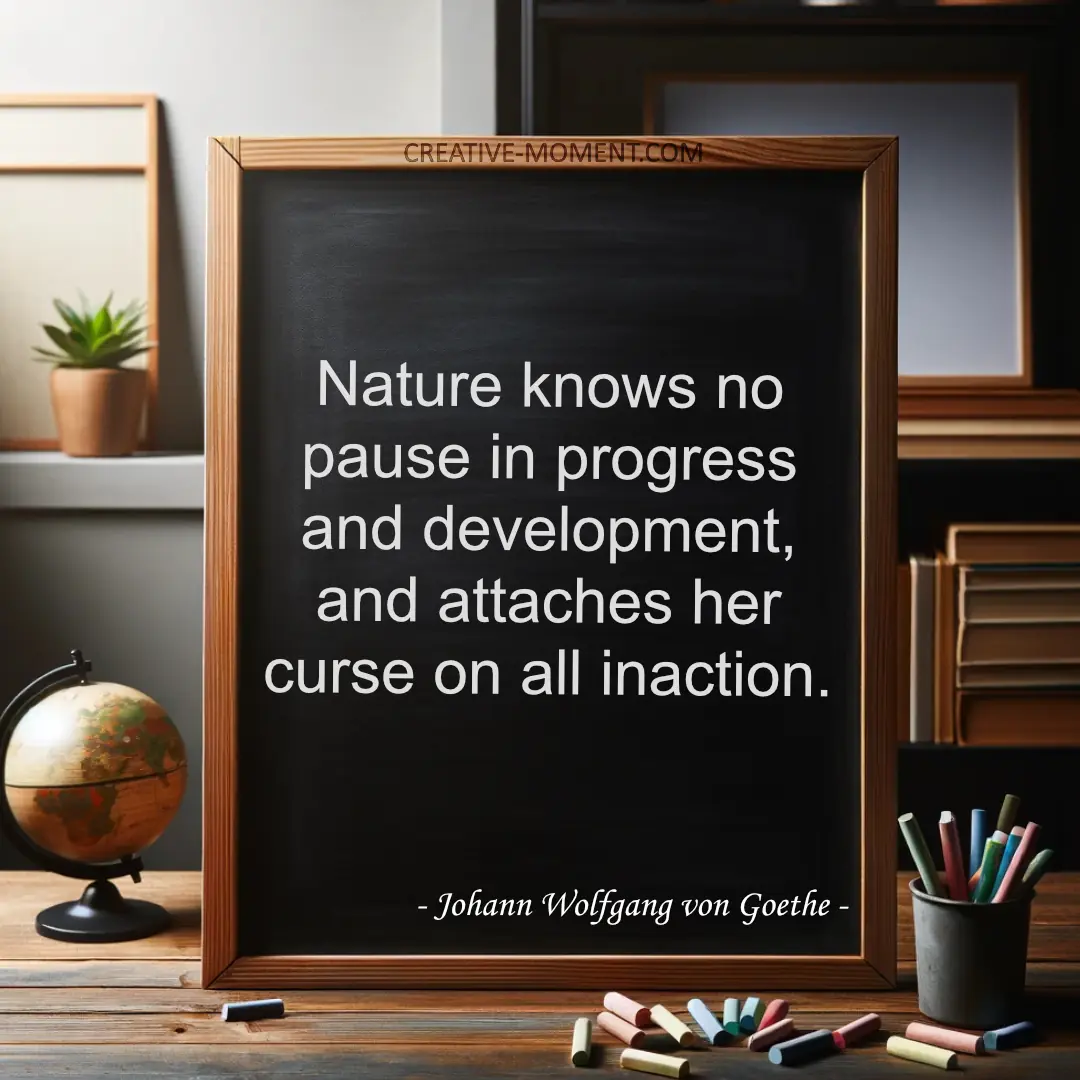
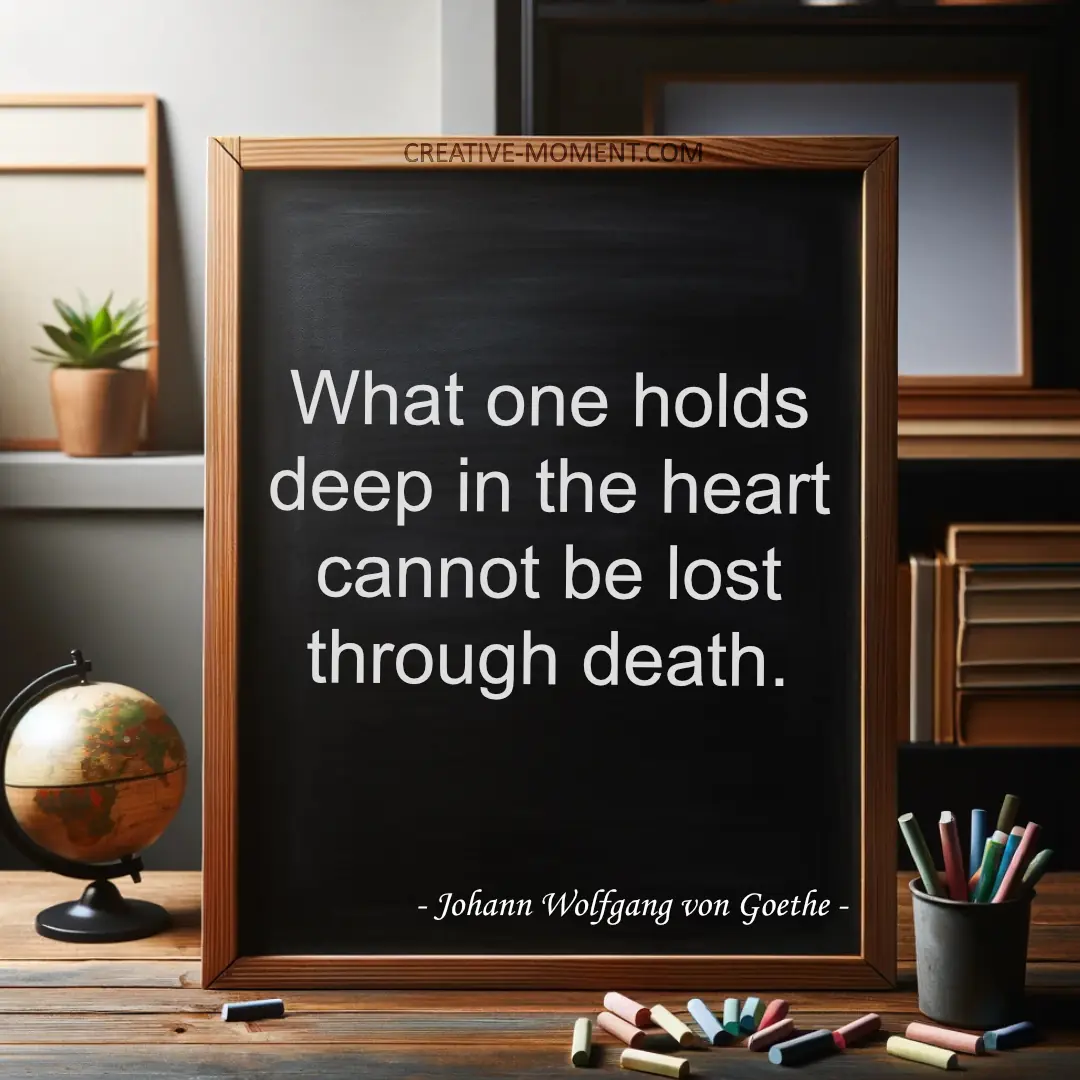
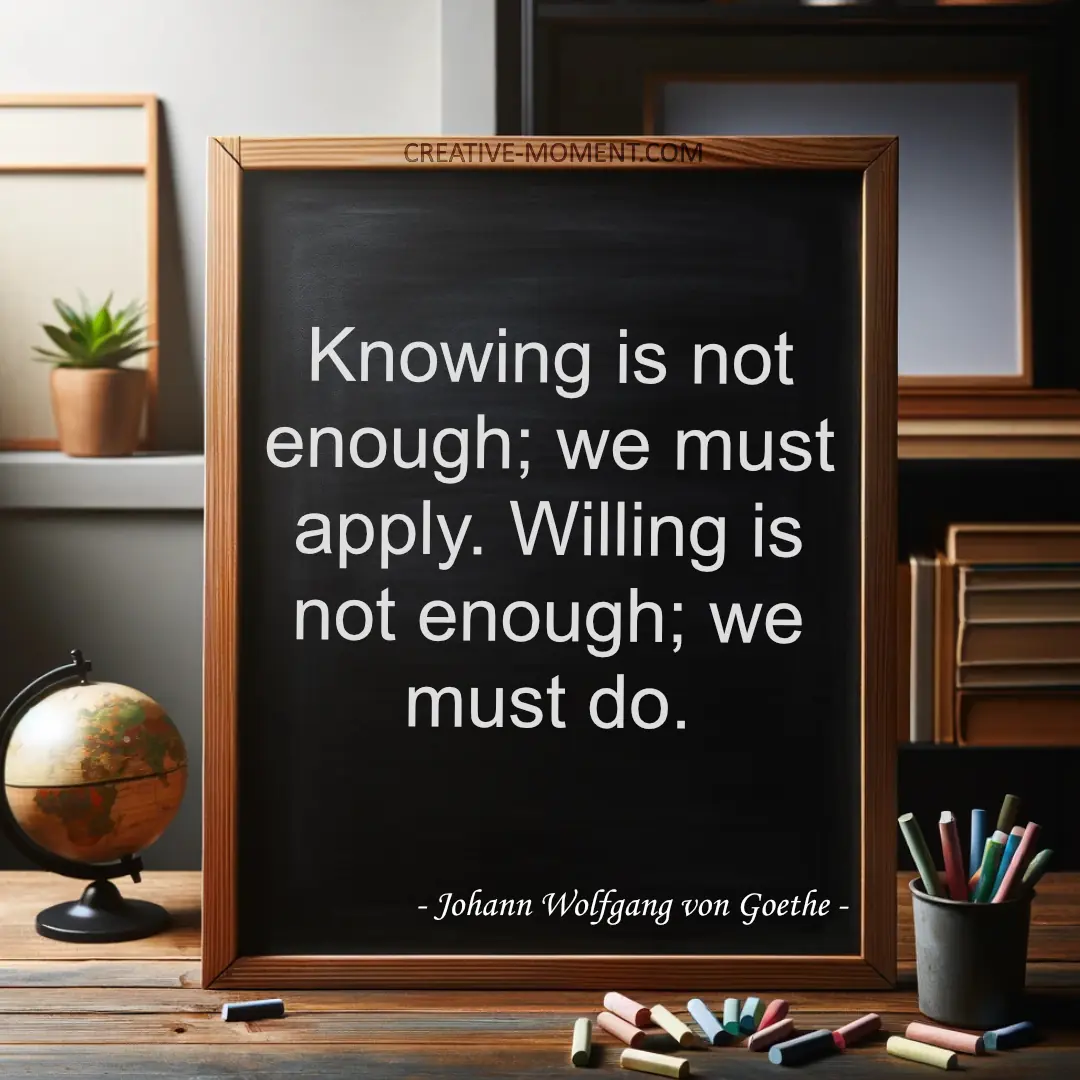 Back to overview
Back to overview
